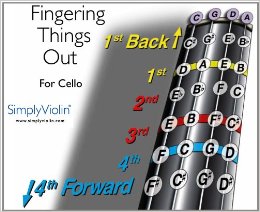This is for a friend of mine, but I'll speak in first person to make it less awkward to type out.
I'm 23, almost 24, and I recently acquired a cello (an electric cello to be precise to keep noise down). I know that my age isn't exactly the prime age to be learning an instrument at, and my musical background consists of playing the flute in highschool at a very amateur level.
Cello tuition is very expensive where I live, and I don't have the money to pay for more than a lesson a week (which might not be sustainable anyways). So I've been trying to research what I could do to practice the cello outside of lessons (which I've not started yet) in an attempt to make lessons more cost efficient. That is, I'd like lessons to have more content in it since I can't afford them regularly.
But there is just too much online! It's very easy to get lost and it's difficult to separate what's right from wrong. What's the best way for me to learn the cello without a teacher? I really would like to devote a lot of time and self learn this as much as possible.

